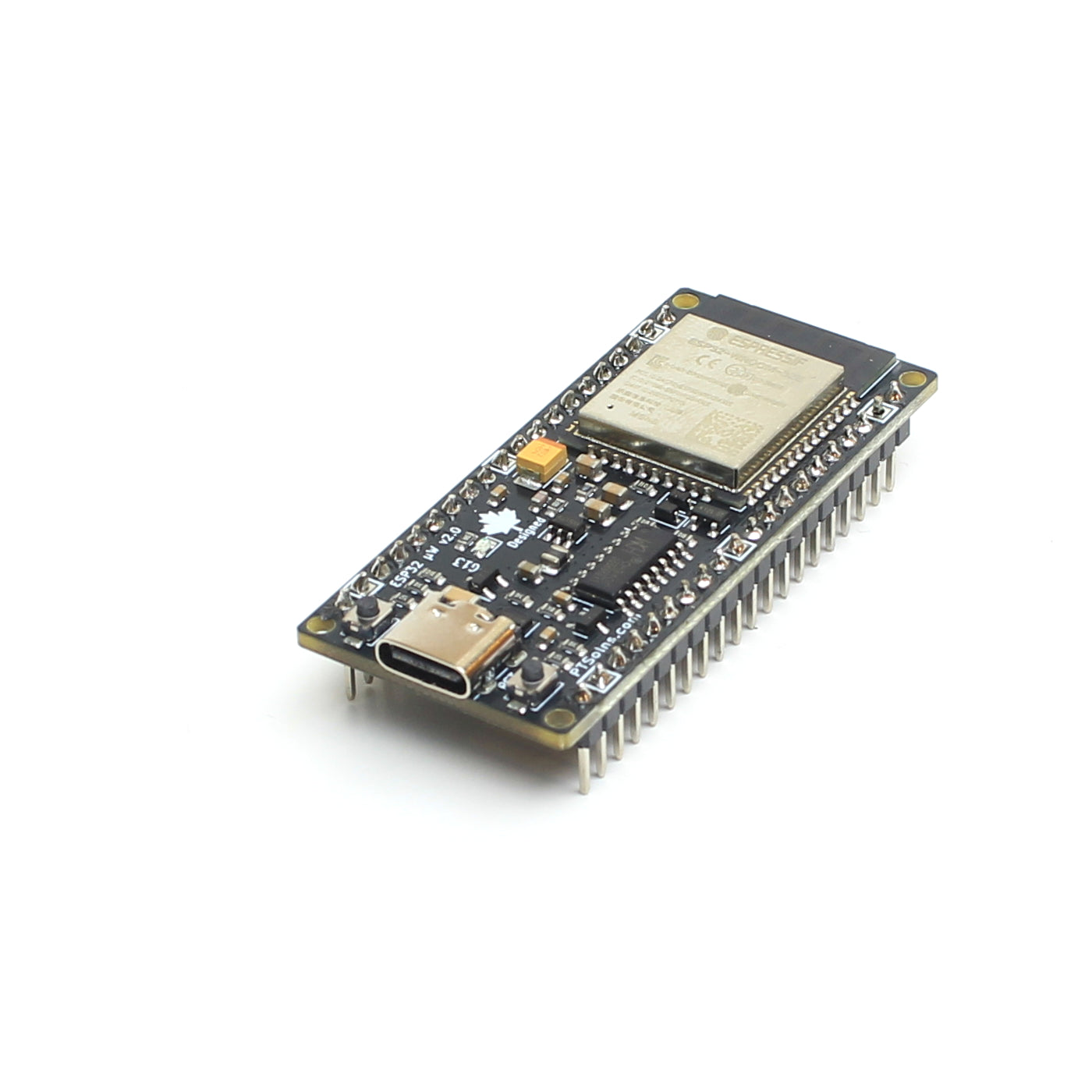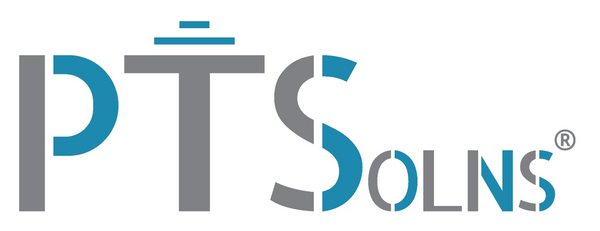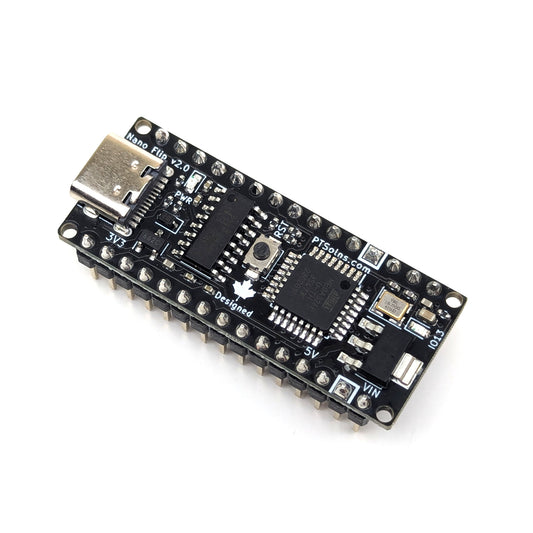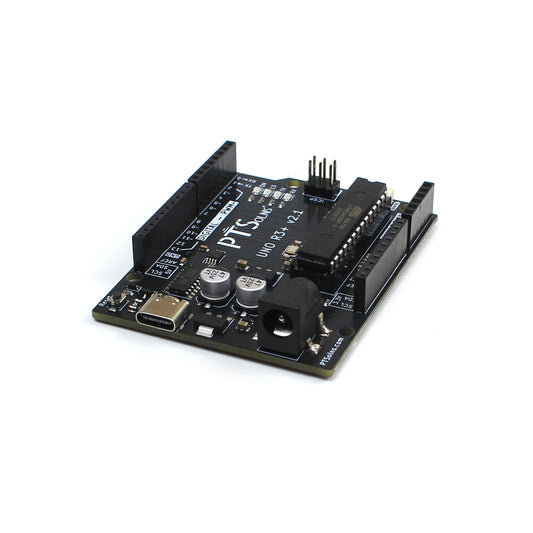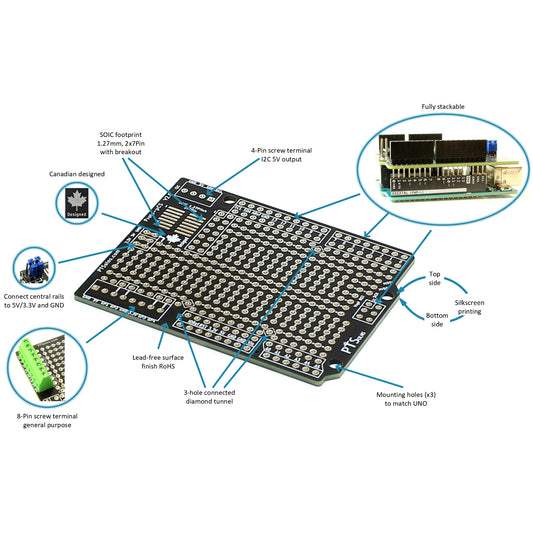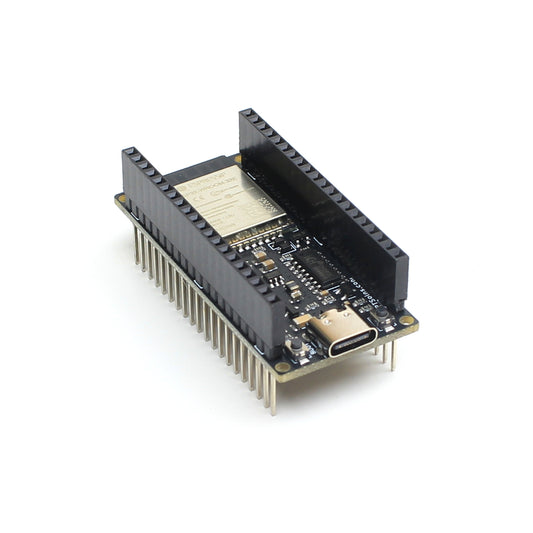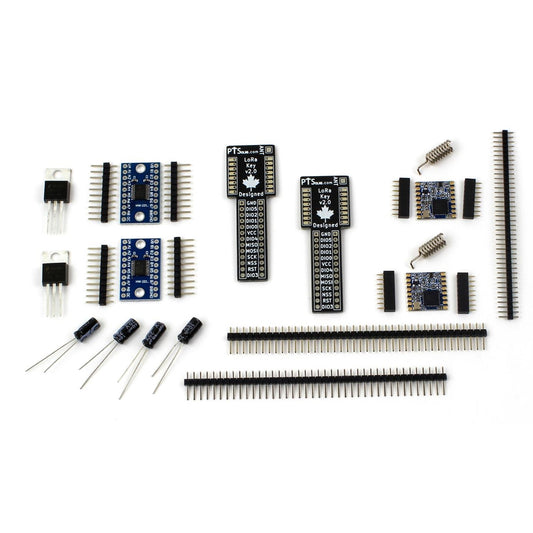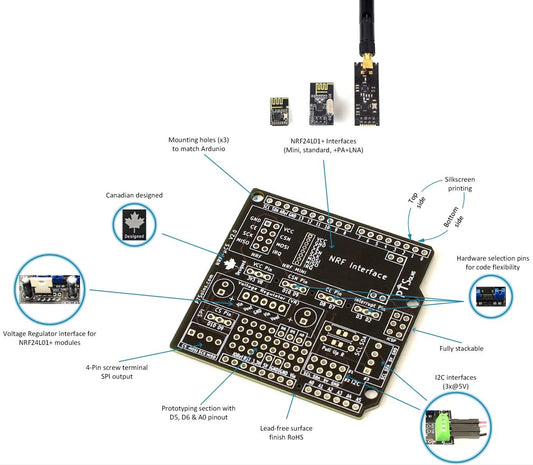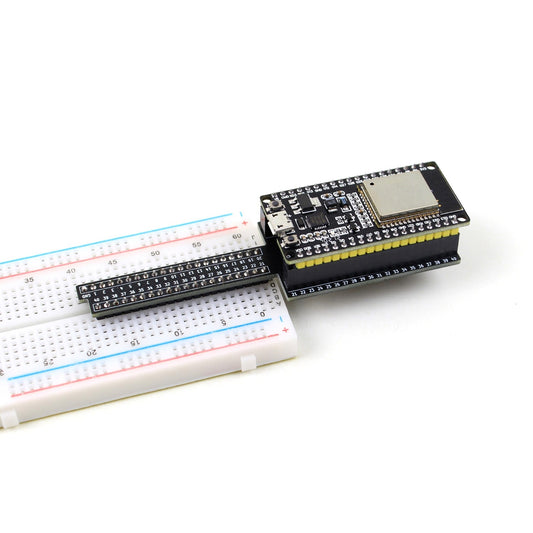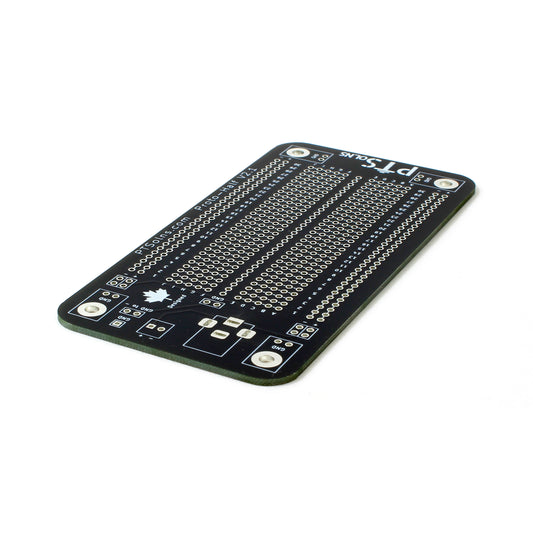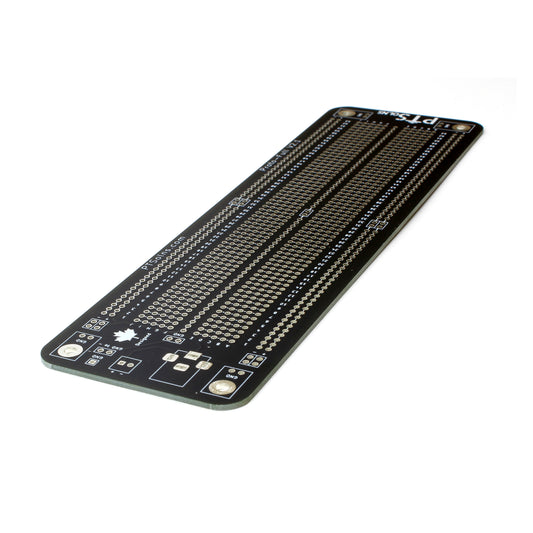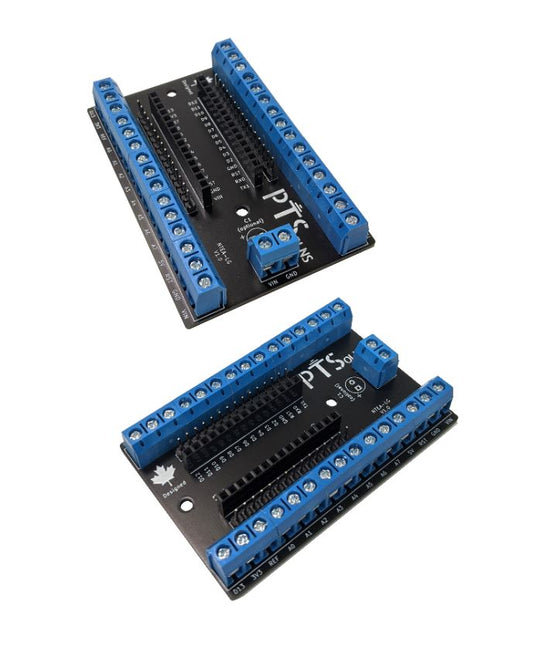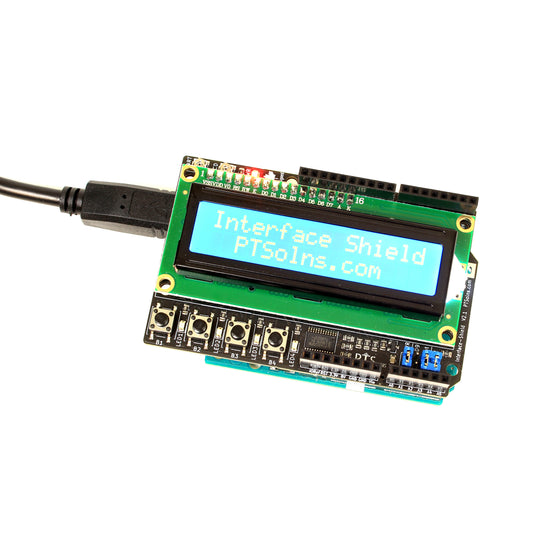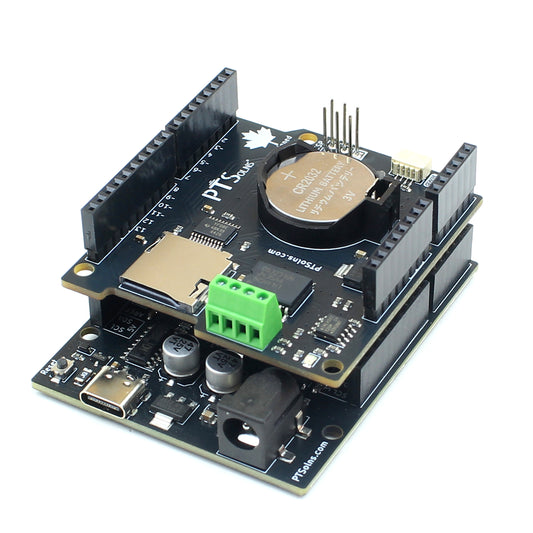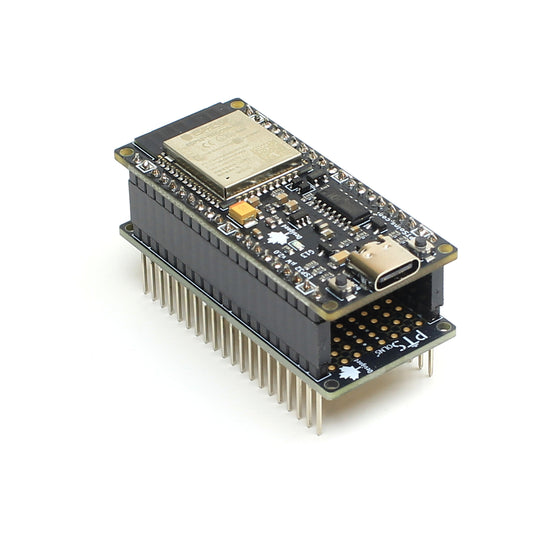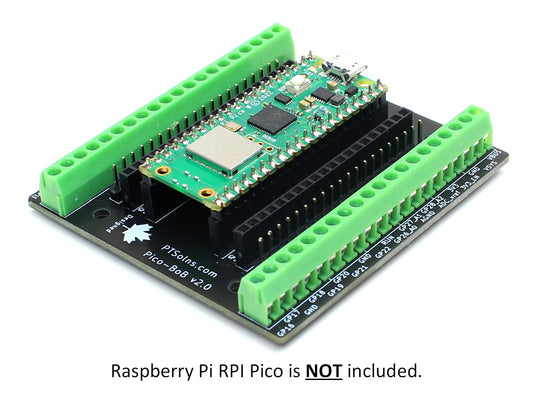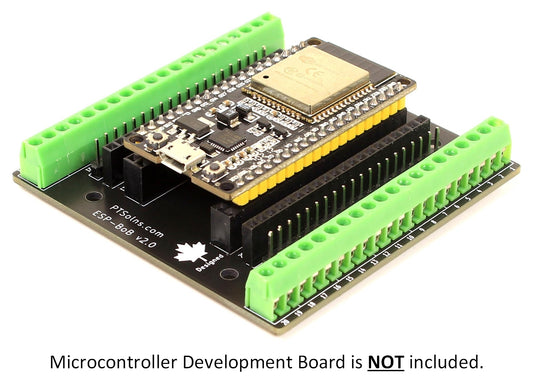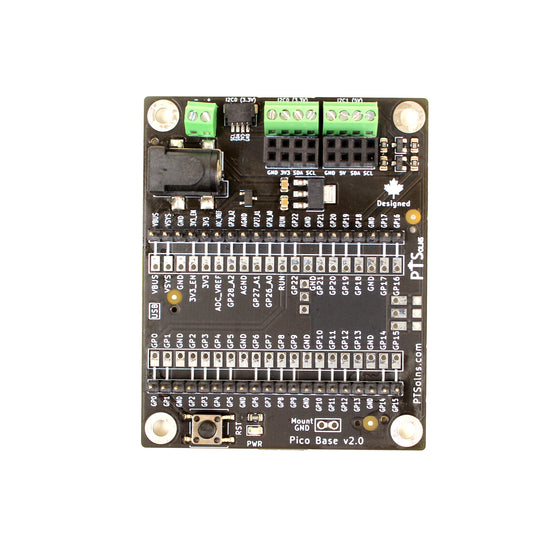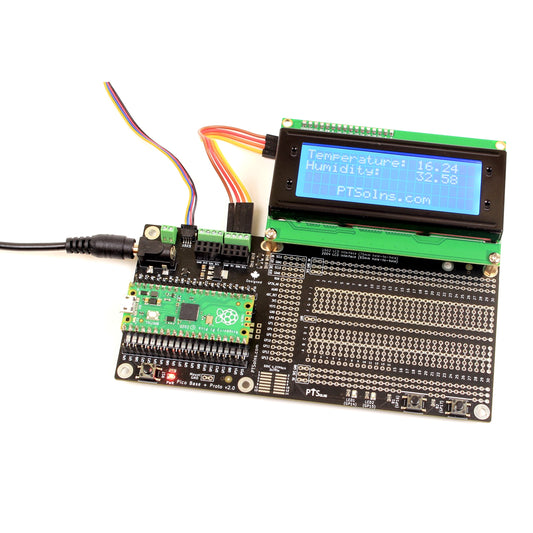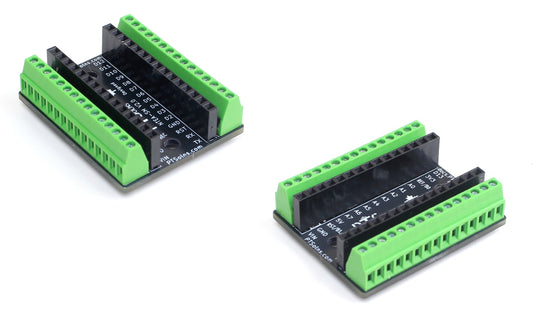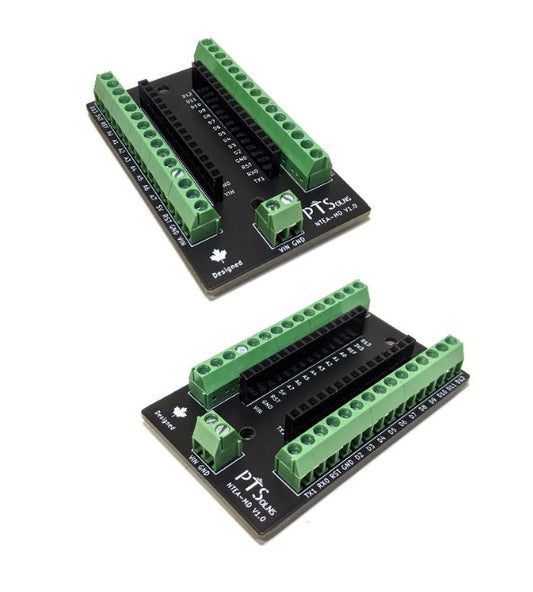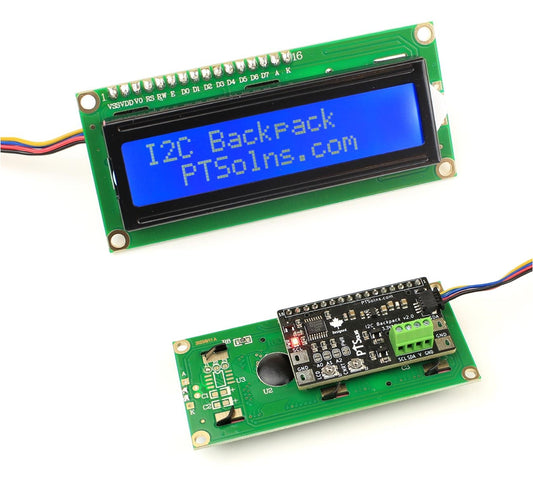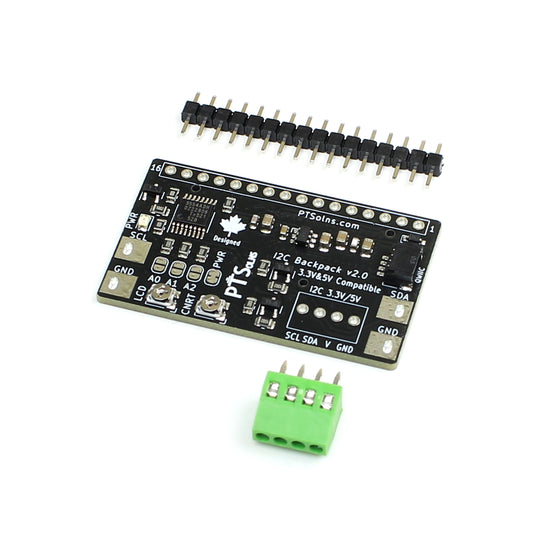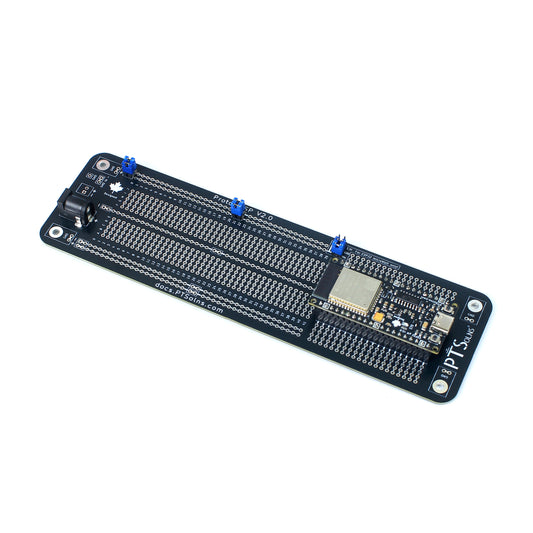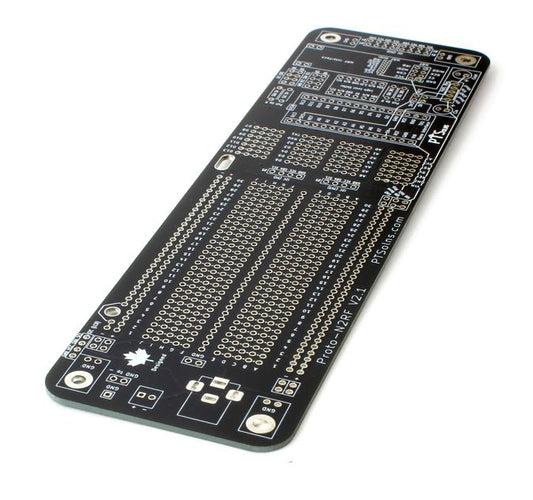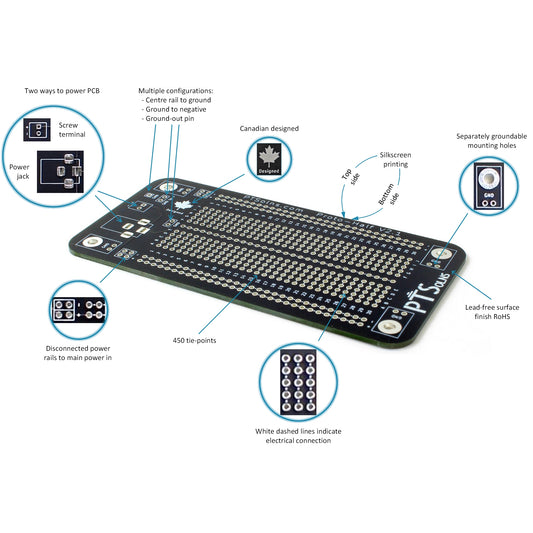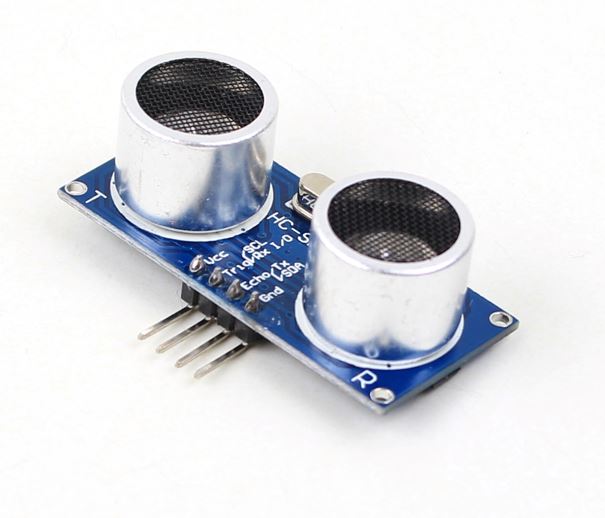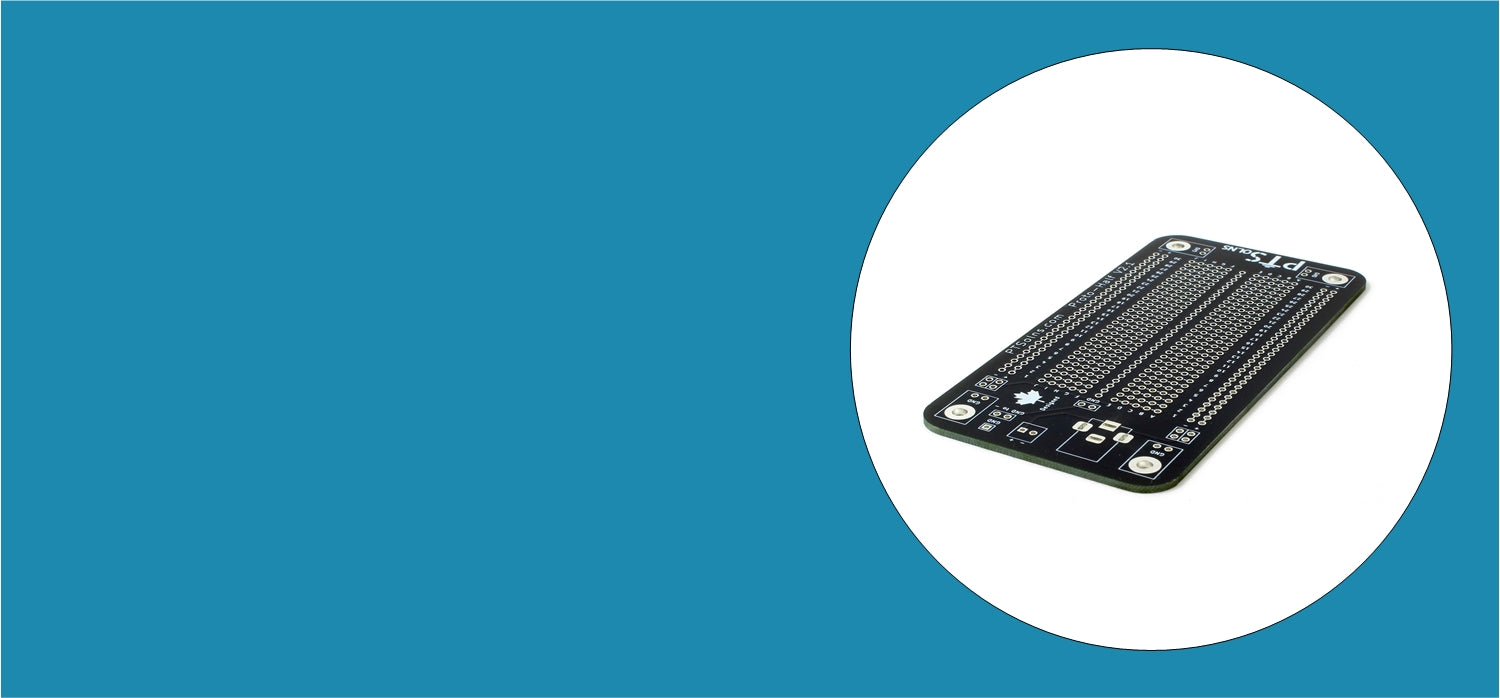
Your Canadian Supplier of Unique Electrical Boards, Modules and Kits

PTSolns IDE
Program microcontroller development boards with PTSolns IDE.
- Free to use, No subscriptions, No fees
- No sign-ups, No sign-ins, No cloud
- Many boards, examples, libraries
❤️ Open Source & Community Driven
All PTSolns products have datasheets, 3D models and a range of other supporting material.
Helping Makers Build | PTSolns
Our goal is to provide the highest quality products backed by our unparalleled customer support.
-
Nano Flip ATmega328P Microcontroller Development Board 2-Pack (Arduino Nano Compatible)
4.89 / 5.0
(9) 9 total reviews
Regular price $22.99 CADRegular priceUnit price / per -
Uno R3+ ATmega328P Microcontroller Development Board (Arduino Compatible)
4.75 / 5.0
(8) 8 total reviews
Regular price $19.99 CADRegular priceUnit price / per -
Proto-Shield Prototype PCB Microcontroller Shield for Arduino Uno
4.92 / 5.0
(13) 13 total reviews
Regular price From $13.99 CADRegular priceUnit price / per -
ESP32 microWatt Development Board Microcontroller
5.0 / 5.0
(2) 2 total reviews
Regular price $19.99 CADRegular priceUnit price / per -
LoRa 915MHz SX1276 Long Range Transceiver Prototyping Module
5.0 / 5.0
(3) 3 total reviews
Regular price $34.99 CADRegular priceUnit price / per -
NRF-Shield nRF24L01 RF PCB Microcontroller Shield for Arduino Uno
5.0 / 5.0
(1) 1 total reviews
Regular price From $13.99 CADRegular priceUnit price / per -
ESP Master Key - Universal Breakout Board Breadboard Adapter for ESP32 ESP8266 Microcontroller Development Boards
4.6 / 5.0
(5) 5 total reviews
Regular price $11.99 CADRegular priceUnit price / per -
Proto-Half Prototyping Solderable Perf Breadboard PCB
5.0 / 5.0
(20) 20 total reviews
Regular price From $10.99 CADRegular priceUnit price / per -
Proto-Full Prototyping Solderable Perf Breadboard PCB
5.0 / 5.0
(8) 8 total reviews
Regular price From $13.99 CADRegular priceUnit price / per -
NTEA-LG Breakout Board Expansion Adapter for Nano Microcontroller Development Board
5.0 / 5.0
(1) 1 total reviews
Regular price $14.99 CADRegular priceUnit price / per -
1602 LCD Interface-Shield with Programmable Buttons and LEDs for Uno (Arduino Compatible)
5.0 / 5.0
(1) 1 total reviews
Regular price $22.99 CADRegular priceUnit price / per -
RTC MicroSD Data Logging Shield for Uno (Arduino Compatible)
Regular price $19.99 CADRegular priceUnit price / per -
microWatt Proto Prototyping Board for ESP32 Microcontroller Development Board
Regular price $13.99 CADRegular priceUnit price / per -
Pico BoB Breakout Board Adapter Module for Raspberry Pi Pico Family
Regular price $14.99 CADRegular priceUnit price / per -
ESP BoB Breakout Board Adapter Module for ESP32 ESP8266 Dev Boards
5.0 / 5.0
(1) 1 total reviews
Regular price $14.99 CADRegular priceUnit price / per -
Raspberry Pi Pico Expansion Board (Pico Base)
Regular price $12.99 CADRegular priceUnit price / per -
Raspberry Pi Pico Expansion Board (Pico Base + Proto)
Regular price $15.99 CADRegular priceUnit price / per -
NTEA-SM Breakout Board Expansion Adapter for Nano Microcontroller Development Board
Regular price $10.99 CADRegular priceUnit price / per -
NTEA-MD Breakout Board Expansion Adapter for Nano Microcontroller Development Board
4.0 / 5.0
(1) 1 total reviews
Regular price $12.99 CADRegular priceUnit price / per -
I2C Backpack for 1602 and 2004 LCD Kit
Regular price $14.99 CADRegular priceUnit price / per -
Prototyping Solderable Breadboard for ESP32 and ESP8266 Development Boards
Regular price From $13.99 CADRegular priceUnit price / per -
Proto-N2RF Prototyping Solderable Perf Breadboard PCB
5.0 / 5.0
(2) 2 total reviews
Regular price From $12.99 CADRegular priceUnit price / per -
Proto-Mix Prototyping Solderable Perf Breadboard PCB
4.75 / 5.0
(4) 4 total reviews
Regular price From $11.99 CADRegular priceUnit price / per -


Nano Flip 3V3 Microcontroller ATmega328P Dev Board 3.3V Logic Level 2-Pack (Arduino Nano Compatible)
Regular price $22.99 CADRegular priceUnit price / per -
USB UART Bridge U2B Serial Adapter CH340 5V 3.3V Programming Module (2-Pack)
Regular price $14.99 CADRegular priceUnit price / per
Our most popular collections | PTSolns
-

Microcontroller
PTSolns Microcontroller Collection PTSolns microcontroller development boards Nano, Uno, ATmega328P, ESP32-based, and...
-

Shield-Series
The Shield-Series is a collection of unique shields intended for the the...
-

Proto-Series
PTSolns Proto-Series Collection The Proto-Series consists of the Proto-Half, Proto-Full, and the...
-

NTEA Series
PTSolns NTEA-Series This is a collection of PTSolns NTEA-Series.
-
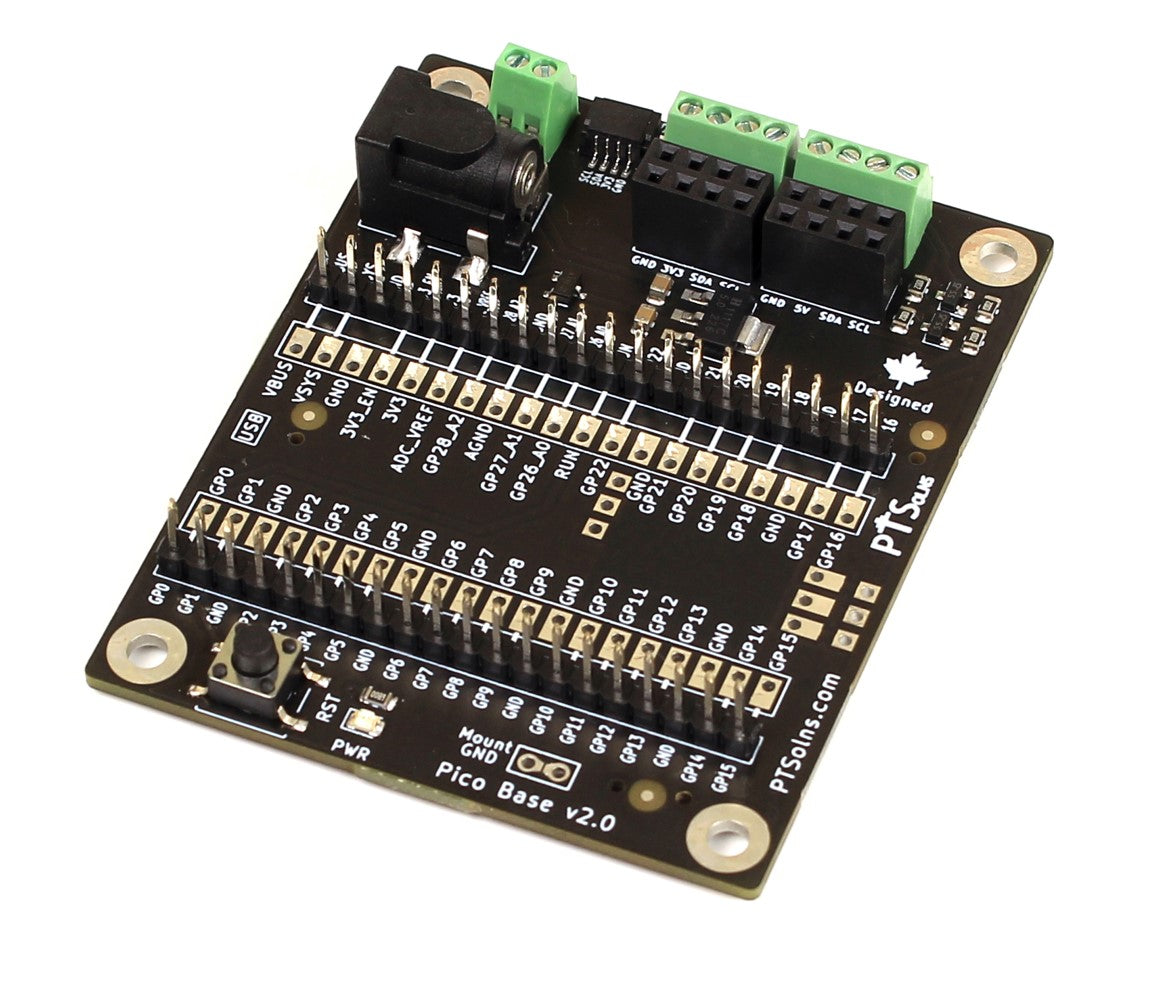
Pico-Series
PTSolns Pico-Series Collection The Pico-Series is designed to interface with the popular...
Tinker Thoughts Blog
View all in Tinker Thoughts Blog-

TTB #28: Node-to-Gateway LoRa Network
This tutorial demonstrates how to build a simple and reliable node to Gateway LoRa network using the PTSolns LoRa SX1276 915MHz Shield and a compatible Uno development board. Assuming a working nearby Gateway, this tutorial shows how to configure The Things Industries End Device so to work with the Shield. Full sketch and steps are provided. Hardware setup is minimal, requiring only stacked shields and USB cables, making this an accessible starting point for long range wireless experimentation.
TTB #28: Node-to-Gateway LoRa Network
This tutorial demonstrates how to build a simple and reliable node to Gateway LoRa network using the PTSolns LoRa SX1276 915MHz Shield and a compatible Uno development board. Assuming a working nearby Gateway, this tutorial shows how to configure The Things Industries End Device so to work with the Shield. Full sketch and steps are provided. Hardware setup is minimal, requiring only stacked shields and USB cables, making this an accessible starting point for long range wireless experimentation.
-

TTB #27: Node-to-Node LoRa Network
This tutorial demonstrates how to build a simple and reliable node to node LoRa network using the PTSolns LoRa SX1276 915MHz Shield and a compatible Uno development board. You will learn how two LoRa nodes communicate directly without a gateway, transmit temperature data using the onboard AHT20 sensor, and implement acknowledgements to improve reliability. The tutorial also explains how to interpret RSSI and SNR values to evaluate link quality and range. Hardware setup is minimal, requiring only stacked shields and USB cables, making this an accessible starting point for long range wireless experimentation.
TTB #27: Node-to-Node LoRa Network
This tutorial demonstrates how to build a simple and reliable node to node LoRa network using the PTSolns LoRa SX1276 915MHz Shield and a compatible Uno development board. You will learn how two LoRa nodes communicate directly without a gateway, transmit temperature data using the onboard AHT20 sensor, and implement acknowledgements to improve reliability. The tutorial also explains how to interpret RSSI and SNR values to evaluate link quality and range. Hardware setup is minimal, requiring only stacked shields and USB cables, making this an accessible starting point for long range wireless experimentation.
-

TTB #26: Hacking a Cuckoo Clock
When a regular Cuckoo clock just is not exciting enough, adding an on demand remote button changes everything. In this project we built a two node wireless link using matched nRF24L01 plus PA plus LNA modules mounted on PTSolns NRF Shields. The transmitter detects a simple button press while the receiver drives a solid state relay that parallels the original clock button. A quick splice into the clock’s internal adjust switch lets the relay mimic a real press. The result is a fully wireless Cuckoo trigger that works from across the room and is surprisingly fun to use.
TTB #26: Hacking a Cuckoo Clock
When a regular Cuckoo clock just is not exciting enough, adding an on demand remote button changes everything. In this project we built a two node wireless link using matched nRF24L01 plus PA plus LNA modules mounted on PTSolns NRF Shields. The transmitter detects a simple button press while the receiver drives a solid state relay that parallels the original clock button. A quick splice into the clock’s internal adjust switch lets the relay mimic a real press. The result is a fully wireless Cuckoo trigger that works from across the room and is surprisingly fun to use.
